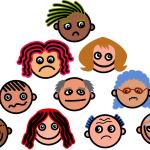Some websites declare everyone has used or been exposed to glyphosate at some point, providing a treasure trove of potentia
Policy & Ethics
The Centers for Disease Control and Prevention recently reported that in the 12‐month period ending last August, about 74,000 people died from fentanyl‐related overdoses
Texas’ political leaders recently have made some inconceivably irresponsible policy decisions.
Because climate-change deniers are no longer able to say, with a straight face, that the climate isn’t changing, they resort to a host of irrelevancies. First, it was that the phenomenon was natural, the climate has always changed.
The Advisory Committee responsible for drafting and proposing this new rule noted that the change reflects the broad consensus developed over the last five years of meetings that Rule 702 has been improvidently applied in many cases.
Join host Cameron English, Dr. Chuck Dinerstein and Dr. Josh Bloom as they break down these stories on Episode 59 of the Science Dispatch podcast:
Critical Economic Theory (CET) is taught at every business school in the country, but usually under the terms micro and macroeconomics. In any event, it is a lens to view issues.
The study, published in JAMA Open Network, looked at the mission statement of 60 new medical schools established since 2000
When we talk about Chinese exports to the U.S., the concern most often revolves around fentanyl and other highly addictive drugs or the loss of jobs and economic power.
Next Tuesday, the Senate Committee on Health, Education, Labor, and Pensions (HELP) is scheduled to consider












